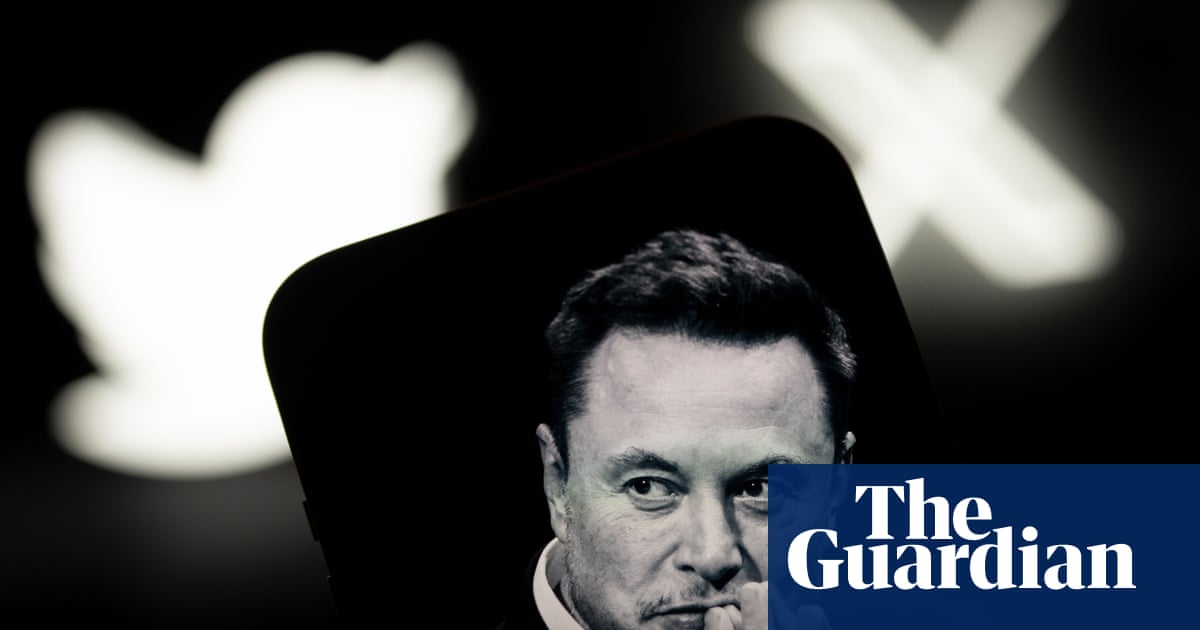There was a time, just three or four years ago, when you could follow the news closely and not hear about Elon Musk for days – or even weeks. He was well on his way to becoming the world’s richest man, and was already a polarising figure, but he was a missable one. Those days are long gone.
Musk is now locked in a fierce public battle with the government and judicial system of Brazil, in the name of free speech, after he refused a court order to block several accounts that were accused of spreading hate speech and disinformation. He is a key figure in the US election race, having been lined up for a job finding savings in government spending should Donald Trump – who he has endorsed – win the presidency. Thanks to his Starlink satellites, he is a critical figure in the balance of power between Russia and Ukraine.
Musk is a powerful man because of his wealth and his control of strategic industries, including space launch and satellites. But he is inescapable because of the social network he took over and then transformed: Twitter.
Even people who never used Twitter more or less know its story over the last few years: Musk bought it, gave it a juvenile new name, X, and the whole thing seems to have been a complete mess that has made everyone miserable, including Musk himself.
That makes the job of New York Times reporters Kate Conger and Ryan Mac in their chronicle of the takeover and its resulting fallout, a difficult one: almost anyone who might actually read this book is pretty familiar with how things have played out. How can you make a story compelling when each step along the way has already been so heavily covered?
Conger and Mac’s answer to that is their astonishing ability to take the reader into almost every room that mattered during the contentious $44bn acquisition. The book opens with a Twitter data scientist getting ready to meet Musk, ostensibly in a bid to keep his job. The employee, however, has already decided he’s quitting and is instead using the opportunity to level with the new boss. The encounter goes predictably badly, leading him to accuse Musk of being one of the most gullible men on the planet. The book records Musk’s response as being two words long: “Fuck you.”
At other moments, the narration seems to know Musk’s exact movements when he was at home with his then-girlfriend Claire Elise Boucher (better known as the musician Grimes), or the conversations that take place on his plane. Such is the apparent omniscience that impressive accounts of goings-on in boardrooms and executive suites during the takeover seem par for the course.
Musk himself did not grant the authors an interview. Some of their insights come from court documents and other reporting, but there is no doubt that Conger and Mac enjoyed unmatched access to a range of characters from all sides. You couldn’t hope for a better ringside seat on the unfolding drama.
This closeup view is rarely flattering. Twitter’s co-founder, Jack Dorsey, comes across first as flighty and disengaged, then outright sulky as he is eased out as Twitter’s CEO – before himself joining Musk on the radical right. By the time we leave him, “his online posts were the kinds of things he would have had labelled or removed while he was Twitter’s CEO”. Musk’s authorised biographer, Walter Isaacson, seems to jump from observer to participant. Not only does he reportedly advise Elon Musk on the price point for his ill-fated plan to sell Twitter verification – the fabled “blue tick” – but apparently tells Musk to drop labels “for all media”.
Heroism, where it comes, centres on efforts to keep datacentres online, or to keep a moderation team in their jobs for another day or two to cover elections in the US and Brazil. Some characters are more sympathetic than others, but there are few good guys here – Character Limit is the story of a dysfunctional company becoming a shambolic one.
All of this makes for compelling reading, perhaps compelling enough to keep even people used to X’s 280-character-long posts engaged for a 430-page book, which is surely no small feat. Those who have followed the story obsessively will find plenty of nuggets to keep them interested if they can get past the somewhat stodgy first third of the book. Casual observers, who will probably have already had their fill from the endless news reporting on Musk’s antics, might find it harder going.
after newsletter promotion
One of Conger and Mac’s challenges is that they are telling a story without an ending. X might go bust within the next year, or prove decisive in the 2024 presidential race. It could easily do both. In fact, the stately speed of book publishing means that Character Limit’s narrative has already been overtaken by events. As a retelling of exactly what happened and what it felt like to be there, it is a triumph. Anyone hoping for insights into what it all means, or what might happen next, will need to look elsewhere.
Musk’s companies have put more rockets into space this year than every government on the planet combined. He has businesses developing artificial intelligence, human-machine interfaces, self-driving vehicles, and more. A book with unprecedented access to his circle portrays him as a man with no impulse control, no plans, a desperate need for flattery and no ability to separate truth from fiction. If it leaves open the question of why he does what he does, and what he’ll do next, that may be because no one – least of all Musk – really knows.
